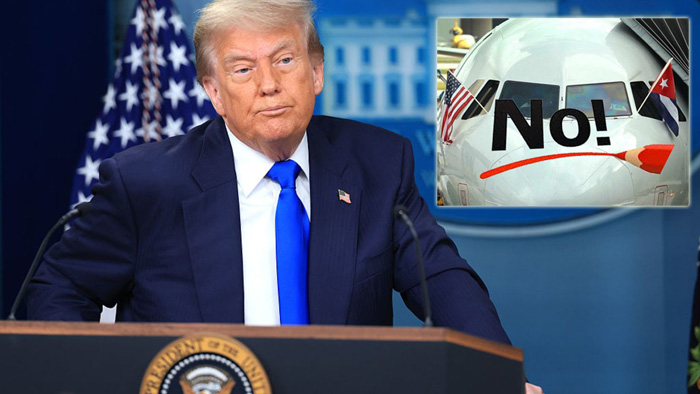Cuban economist and researcher José Luís Perelló commented on Tuesday, on his Facebook post, on the new U.S. measures that directly affect tourism in this country.
Perelló referred to these details and how they reinforce the problems facing the island, citing the signing of a memorandum by US President Donald Trump on the ban on US tourism to Cuba.
The president signed a presidential memorandum on Monday to establish his administration’s policies on Cuba, similar to those of his first term, including the implementation of a legal ban on US tourism to the country, as well as an economic embargo, Perelló emphasized.
Economic practices that disproportionately benefit the Cuban government or its military, intelligence, or security agencies will be eliminated, according to the memorandum.
In addition, the document establishes efforts to expand the internet, promote a free press, promote free enterprise, and promote free association with the country.
A fact sheet indicates that some economic exceptions will be made for transactions that advance U.S. policy objectives or support the Cuban people.
The memorandum also notes that the administration has no intention of reinstating the Wet Foot, Dry Foot policy, which allowed Cuban migrants to remain in the country once they reached U.S. soil.
Trump signed a travel ban earlier this year that includes Cuba and 11 other countries.
Additionally, the text will order a review of human rights abuses in Cuba, including unlawful detentions and inhumane treatment, and requires a report on fugitives from U.S. justice living in Cuba or being protected by the Cuban government.
These measures have already been rejected by the island’s authorities and by solidarity groups around the world.
In another memorandum signed this Monday, the government instructs executive agencies to share information with each other when granting financing for energy infrastructure projects and critical minerals and materials.
This section seeks to alleviate regulatory burdens for companies that sometimes must submit multiple applications to different agencies. To simplify the process, the memorandum calls for the creation of a common application for federal funding in this area.
These measures aggravate Cuba’s already difficult economic situation and, in particular, aim to further erode island tourism, at a time when authorities and industry professionals are making renewed efforts to recover the travel industry.


